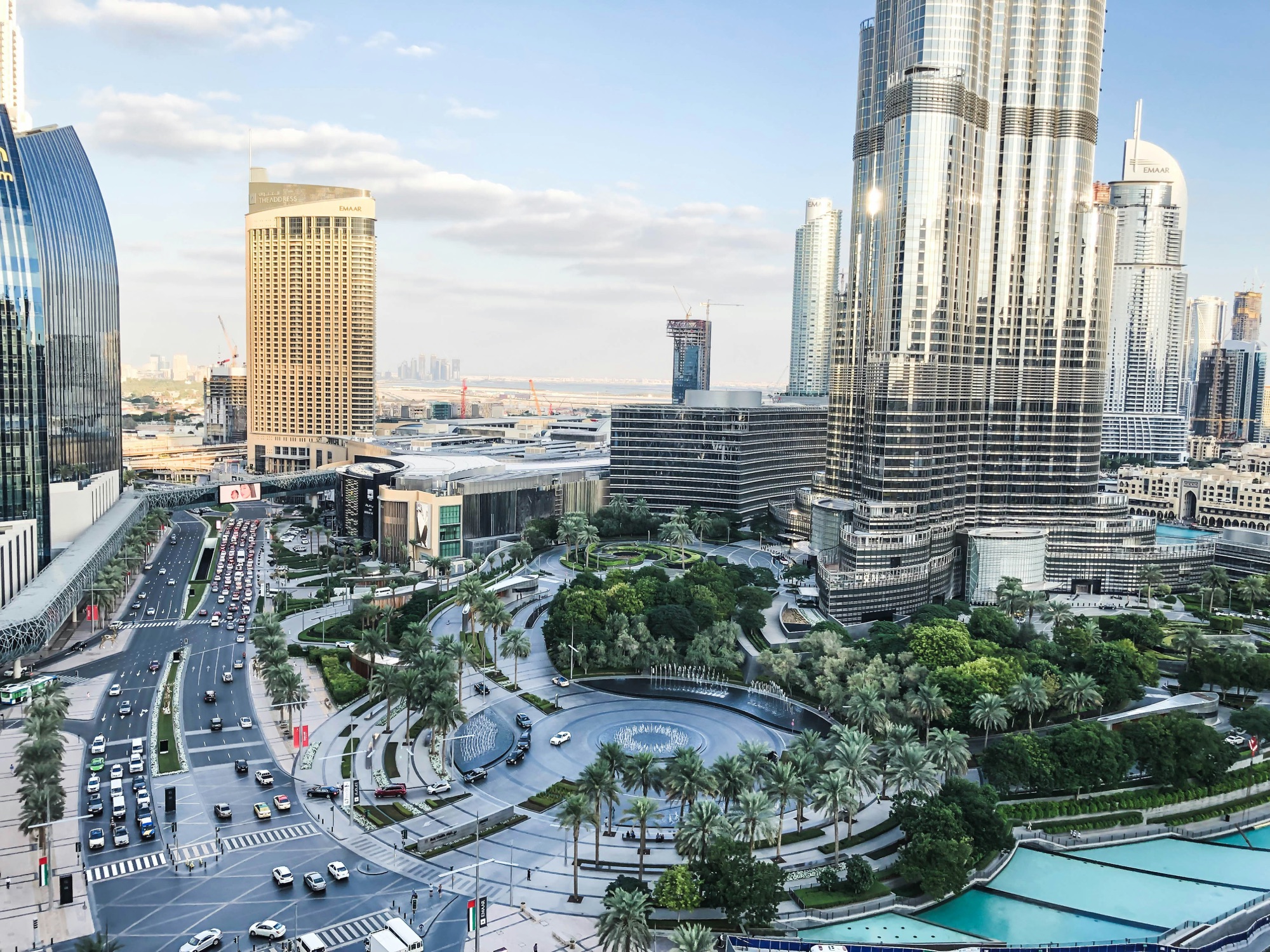The United Arab Emirates (UAE), a federation of seven emirates located in the Arabian Peninsula, is one of the wealthiest countries in the world. Over the last few decades, the UAE has transformed from a primarily desert nation into a global economic powerhouse with a high standard of living, advanced infrastructure, and diverse economy. While many associate the UAE’s wealth with its vast oil reserves, its prosperity is also rooted in strategic investments, economic diversification, and visionary leadership. This article explores the key factors contributing to the UAE’s wealth and why it has maintained its position as a leading global economy.
1. Vast Oil and Natural Gas Reserves
The discovery of oil in the mid-20th century was the catalyst for the UAE’s rapid economic growth. Abu Dhabi, the largest emirate, has one of the world’s largest proven oil reserves and is the primary contributor to the UAE’s wealth through oil and gas production. The UAE is the seventh-largest producer of oil globally, and oil revenues have historically been a significant driver of the country’s GDP.
However, it wasn’t just the discovery of oil that led to wealth—it was the wise management of oil revenues. The ruling families of the UAE, especially in Abu Dhabi, have strategically reinvested these revenues into infrastructure, education, healthcare, and economic diversification. This allowed the UAE to build modern cities, such as Dubai and Abu Dhabi, which are now recognized as global hubs for finance, tourism, and trade.
Abu Dhabi’s Oil Wealth:
- Abu Dhabi National Oil Company (ADNOC) manages the majority of the country’s oil and gas production, contributing billions of dollars in revenues annually.
- These oil revenues have allowed the emirate to establish sovereign wealth funds, such as the Abu Dhabi Investment Authority (ADIA), which is one of the largest sovereign wealth funds in the world, investing in global assets to generate further wealth for future generations.
While oil wealth laid the foundation for the UAE’s economy, the country has made significant strides in diversifying its sources of income.
2. Economic Diversification
Despite its wealth from oil, the UAE recognized early on the need to diversify its economy to reduce dependency on oil revenues. As a result, the UAE has invested heavily in non-oil sectors such as tourism, finance, real estate, technology, and logistics. This diversification strategy has been particularly visible in Dubai, which has minimal oil reserves but has managed to become one of the most prosperous cities in the world through other sectors.
Key Sectors in the UAE’s Diversification:
- Tourism: Dubai and Abu Dhabi have emerged as major global tourism destinations, attracting millions of visitors each year. Dubai is home to iconic landmarks like the Burj Khalifa, Palm Jumeirah, and the world’s largest shopping mall, the Dubai Mall. Abu Dhabi, with attractions such as the Louvre Abu Dhabi and Sheikh Zayed Grand Mosque, has also invested heavily in cultural and luxury tourism. The UAE hosted Expo 2020, which further showcased its ability to attract global attention and investment.
- Finance: The UAE has become a global financial hub, particularly Dubai, with its Dubai International Financial Centre (DIFC) serving as a gateway for banks, financial institutions, and multinational companies. Its business-friendly environment, tax incentives, and regulatory frameworks have attracted major players in the finance industry.
- Real Estate: The UAE has seen rapid development in its real estate market, particularly in Dubai and Abu Dhabi. Projects such as Burj Khalifa (the tallest building in the world), The World Islands, and Dubai Marina have become symbols of the UAE’s modernity and ambition. The real estate sector continues to attract foreign investment, especially from Europe, Asia, and the Middle East.
- Aviation and Logistics: The UAE has capitalized on its strategic geographic location at the crossroads of Europe, Asia, and Africa, making it a hub for global trade and transport. Emirates Airlines (Dubai) and Etihad Airways (Abu Dhabi) are two of the largest and most successful airlines in the world. Dubai International Airport and Abu Dhabi International Airport serve millions of passengers annually, cementing the UAE’s role as a global aviation hub.
This diversified economy has helped the UAE remain resilient, even during periods of global oil price volatility.
3. Business-Friendly Environment and Free Zones
The UAE has established itself as one of the most business-friendly countries in the world, offering attractive conditions for foreign investment and multinational companies. One of the key strategies has been the creation of free zones, where businesses can enjoy benefits such as 100% foreign ownership, full profit repatriation, and tax exemptions.
Some of the most prominent free zones in the UAE include:
- Jebel Ali Free Zone (JAFZA): Located in Dubai, JAFZA is one of the largest and most successful free zones in the world, home to over 7,000 companies.
- Dubai Media City and Dubai Internet City: These free zones cater to companies in the media, technology, and communications sectors, attracting global giants such as Google, Microsoft, and Facebook.
In addition to free zones, the UAE’s favorable tax environment has made it attractive for businesses and individuals. Until recently, there was no corporate or personal income tax in the UAE (with certain exceptions in the oil and banking sectors). However, a 9% corporate tax on large businesses was introduced in 2023 to ensure compliance with international tax standards, while still maintaining the UAE’s business-friendly reputation.
4. Luxury Tourism and Hospitality
Tourism plays a significant role in the UAE’s economy, particularly in Dubai and Abu Dhabi. The country has established itself as a destination for luxury tourism, attracting millions of high-net-worth individuals who come for shopping, leisure, and exclusive experiences.
Key Attractions in the UAE:
- Burj Al Arab: Dubbed as a “7-star hotel,” this iconic structure is a symbol of Dubai’s luxury offerings.
- Burj Khalifa: As the tallest building in the world, it attracts millions of tourists annually for its observation decks and luxury apartments.
- Palm Jumeirah: A man-made island that hosts luxury hotels like the Atlantis and residential developments catering to the ultra-rich.
Abu Dhabi has invested in its cultural and luxury tourism as well, with attractions like the Louvre Abu Dhabi and luxury resorts on Saadiyat Island. These developments, along with the Formula 1 Abu Dhabi Grand Prix, have positioned Abu Dhabi as a destination for elite travelers.
The UAE’s ability to continuously attract tourists from around the globe has ensured a steady stream of income from its hospitality and entertainment sectors.
5. Visionary Leadership and Long-Term Planning
The UAE’s success can be attributed to its visionary leadership. Leaders like Sheikh Zayed bin Sultan Al Nahyan, the founding father of the UAE, and Sheikh Mohammed bin Rashid Al Maktoum of Dubai, recognized the importance of leveraging oil wealth to build a diversified, sustainable economy.
The UAE’s leadership has implemented strategic development plans, such as:
- UAE Vision 2021: Aimed at positioning the UAE as one of the best countries in the world by its 50th anniversary in 2021. This plan focused on economic diversification, education, healthcare, and innovation.
- Abu Dhabi Vision 2030: A long-term economic plan that focuses on reducing the emirate’s reliance on oil and growing sectors such as finance, tourism, and manufacturing.
- Dubai Industrial Strategy 2030: This strategy aims to make Dubai a global hub for knowledge-based, innovation-driven industries, focusing on sectors such as aerospace, maritime, and pharmaceuticals.
By aligning the country’s economic goals with long-term development strategies, the UAE has ensured that it remains competitive in an ever-changing global economy.
6. Strong Governance and Political Stability
Unlike many of its neighbors in the Middle East, the UAE has maintained political stability since its formation in 1971. This stability has been a key factor in attracting foreign investment, as businesses and individuals feel secure in the UAE’s legal and regulatory environment.
The UAE’s government operates efficiently and has consistently fostered a pro-business environment that encourages innovation, entrepreneurship, and foreign investment. The country’s leadership has also focused on developing strong diplomatic ties with other nations, further enhancing its global standing.
7. Strategic Location for Trade and Commerce
The UAE’s strategic geographic position at the crossroads of Europe, Asia, and Africa has been a major asset in its economic success. The country’s ports, such as Jebel Ali Port in Dubai (the largest man-made harbor in the world), serve as vital trade hubs for goods moving between these regions.
Dubai’s Jebel Ali Free Zone and Khalifa Port Free Trade Zone in Abu Dhabi have attracted thousands of businesses involved in trade, logistics, and manufacturing, further solidifying the UAE’s role as a global trade center.
Conclusion
The UAE’s wealth is the result of a combination of factors, including its vast oil reserves, strategic economic diversification, and visionary leadership. While oil provided the initial foundation for the country’s prosperity, it was the UAE’s foresight in investing in non-oil sectors such as tourism, finance, and real estate that allowed it to build a sustainable and diversified economy.
Today, the UAE stands as a global hub for business, luxury tourism, and innovation, with a strong economy that continues to grow and adapt. Its business-friendly environment, political stability, and strategic location ensure that the UAE will remain a leading player in the global economy for years to come.




